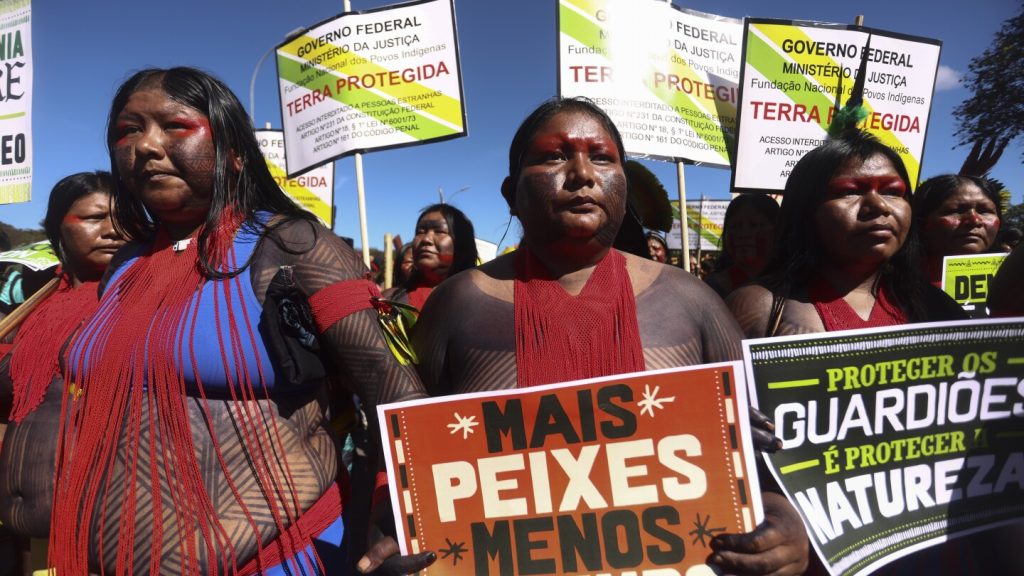Thousands of Indigenous people marched in Brazil’s capital, demanding official recognition of lands they have inhabited for centuries and protection from activities like illegal mining. With slogans like “The future is Indigenous,” protesters headed towards Three Powers Square in Brasilia, where government institutions are located. Some Indigenous leaders met with President Luiz Inácio Lula da Silva, while others voiced their concerns about the government’s reluctance to create new Indigenous territories. There were also objections to a proposed 950-kilometer rail project that could lead to increased deforestation in the Amazon region.
The Indigenous march in Brasilia marked the end of the 20th annual Free Land Indigenous Camp, which was critical of Lula’s administration. Leaders expressed disappointment in the government’s lack of action and the hostile environment in Congress towards Indigenous and environmental issues. Marivelton Baré, representing 24 Indigenous tribes, highlighted the political instability, disrespect, and lack of trust in the current government. Despite some progress in creating Indigenous territories under Lula, there are still over 250 pending claims awaiting recognition, with Indigenous lands covering around 13% of Brazil’s territory.
Since beginning his third term in January of the previous year, President Lula’s administration has established 10 new Indigenous territories, but Indigenous leaders argue that this is insufficient. The Socio-Environmental Institute reports that many territories are still awaiting recognition from the federal government. Lula’s efforts to demarcate Indigenous lands stand in contrast to his predecessor, Jair Bolsonaro, who refused to create any additional Indigenous territories. However, Indigenous demands face opposition from the powerful agribusiness sector, supported by numerous Congress members and governors across Brazil, complicating efforts to protect Indigenous lands and rights.
The Indigenous march and Free Land Indigenous Camp highlighted the ongoing struggle for recognition and protection of Indigenous territories in Brazil. Despite some progress in creating Indigenous lands, Indigenous leaders feel that the government’s actions are insufficient and the political environment is hostile towards their interests. The proposed rail project and concerns about increased deforestation further add to the challenges facing Indigenous communities in Brazil. President Lula’s administration faces pressure to address these issues and fulfill the demands of Indigenous groups, amidst opposition from powerful sectors within Brazilian society. The future of Indigenous rights and territories in Brazil remains uncertain as Indigenous communities continue to advocate for recognition and protection of their lands.


